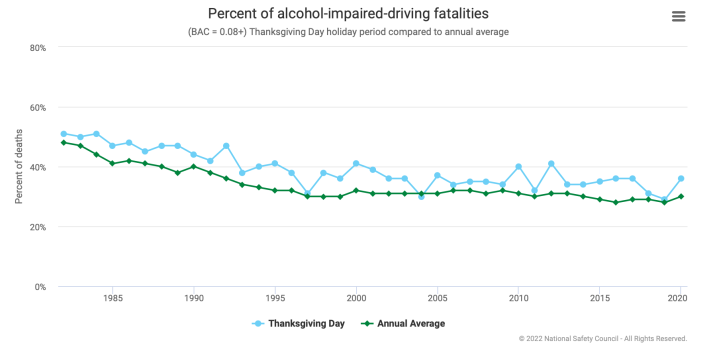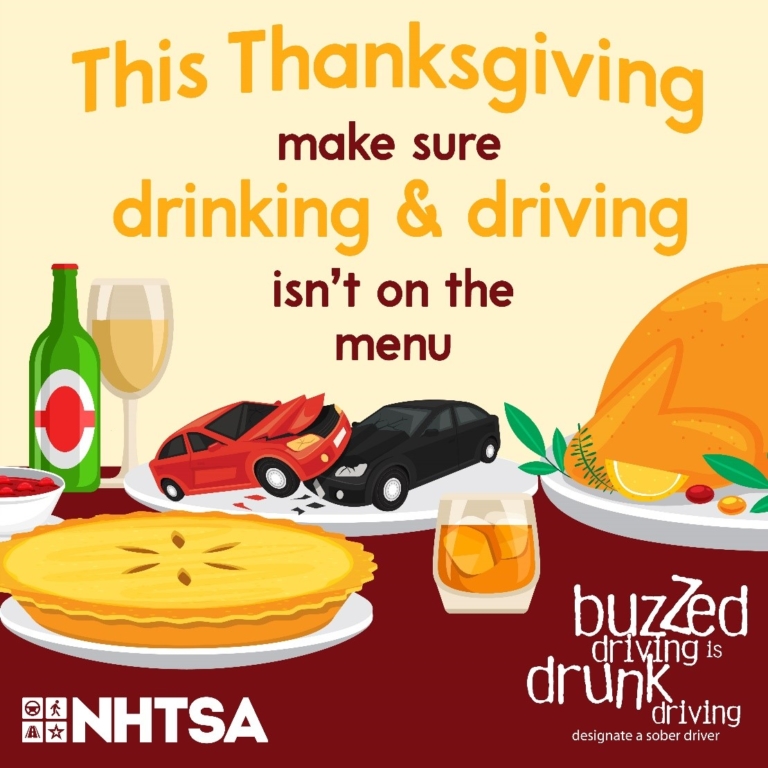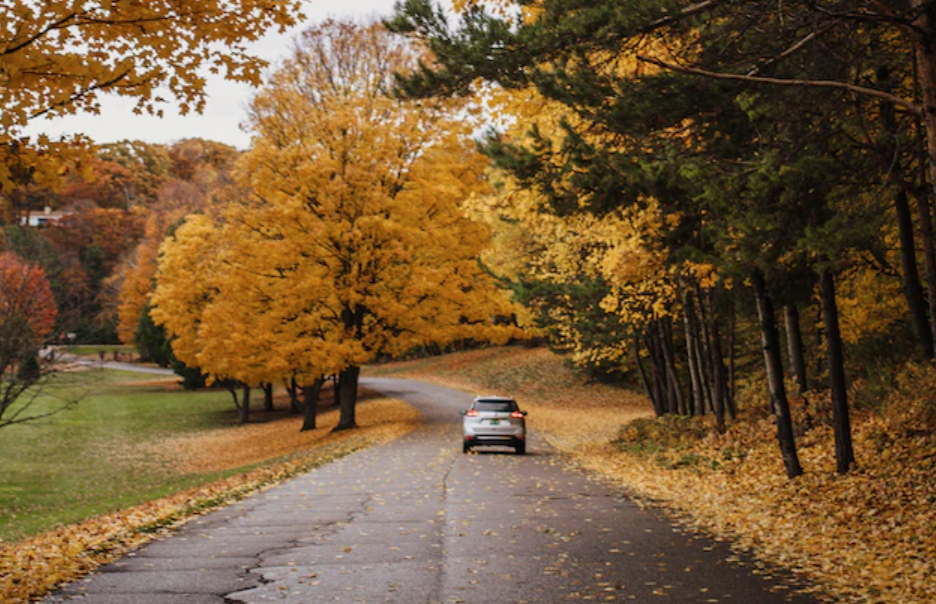An estimated 518 people will die in car crashes on U.S. roads this Thanksgiving, a leading safety organization says — but little is being done to save lives by addressing the root causes of traffic violence.
According to a new analysis by the National Safety Council, U.S communities are projected to experience their deadliest holiday travel weekend since November 2007, thanks to a combination of increases in impaired driving after holiday gatherings, more vehicle miles traveled, poor weather preparedness, and a host of other systemic factors have been driving non-holiday car crash totals up to 15-year highs since the beginning of the pandemic.
The Council has accurately predicted Thanksgiving weekend car crash deaths in four of the last five years for which official totals are available, with the exception of 2017, when researchers underestimated the violence by 11 percent.
"We hear it all the time, but if a loved one tells you, 'Drive safe,' even out of habit, please do," Mark Chung, executive vice president of roadway practice at NSC, told Forbes. "The National Safety Council cannot stress enough the importance of taking safety personally, especially on the roads during the holidays."

Personal responsibility, though, isn't the only reason why America's road death rate outpaces the rest of the industrialized world — and the holidays are no exception.
The sad fact is, US residents who make the long haul home for a turkey dinner are driving on the same dangerous, roads as they do the other 51 weekends out of the year, albeit with more drivers, more alcohol, and little intervention from policymakers to make them safer. Pop-up traffic calming is dismissed as a practical impossibility on a holiday when 80 percent of travelers will drive, even though the vast majority of those trips will end on residential roads where slow design speeds would benefit residents year-round. A whopping 4o percent of those trips will take place within 20 miles of home, but rather than increasing transit options (and bus driver's holiday pay) to give inter-city revelers a safer way to get home after a holiday meal or a post-turkey bar binge, agencies usually decrease their service.

Instead, government agencies merely promote taxi rides for would-be drunk drivers. Last week, the Governors Highway Safety Association and Responsibility.org announced that it would team up with Lyft and four state DOTs to fight drunk driving by distributing $80,000, much of it in the form of ride discounts to individuals who have one too many. Despite being paired with cutesy educational campaigns that many advocates will likely find grating — the Colorado DOT is calling its campaign “Nothing Uglier than a DUI" and encouraging participants to take selfies in holiday sweaters from the back of an app-taxi — the program will, to its credit, at least do a little more than scold people who partake from getting behind the wheel.
The emphasis, though, is on "little." Texas's program, for instance, will offer 1,000 $20 ride credits for a massive state that recorded over 64,000 DUI arrests in 2019 alone; Maryland, meanwhile, will offer credits for 4,000 rides, but only on weekends, and they discounts will max out at just $5 — meaning that the state is essentially nudging residents to use their own money to patronize a mode that studies show has double the emissions, congestion, and VMT impact of a private car.
Notably, none of the state DOTs are funding any shared transportation solutions to drunk driving like low-emitting bar shuttles, despite the fact that bar sales spike about 33 percent on the Wednesday before Thanksgiving — known colloquially as "Drinksgiving" — and sales of hard liquor soar by 173 percent.
Ending Thanksgiving road deaths is possible, of course — despite the many approaches that ignore the systemic drivers of traffic violence. After all, cities like Oslo, Helsinki, and Hoboken all celebrate major holidays that compel their residents to drive to see Grandma or down a few more beers with their high school friends that they should, and they've virtually ended car crash fatalities even on the most festive days of the year.
By focusing on little more than getting taxi rides and personal responsibility, though, America is missing out on massive opportunities for change, like building roads that can be safely navigated even on the most dangerous November nights, as well as safe vehicles that are unlikely to kill their occupants or the people outside of them. Creating safe, attractive, affordable alternatives to driving could make a dent, too, as could fast-tracking automotive technology to prevent impaired driving before it starts, as Congress is currently urging NHTSA to do.
Taking those steps would leave Americans with a whole lot to be grateful for — not least the loved ones who will show up at the dinner table next year, rather than losing their lives in preventable tragedies.






